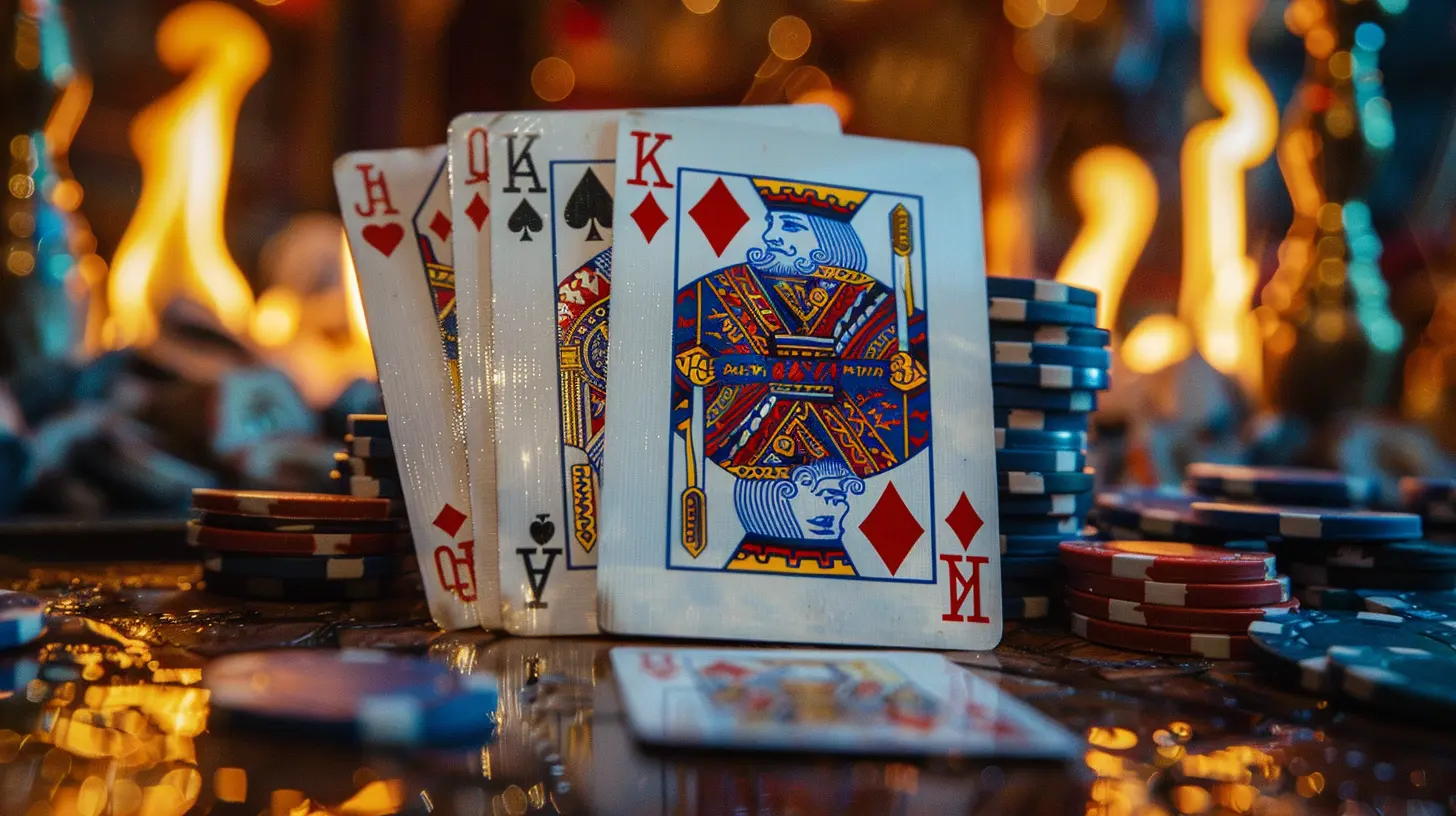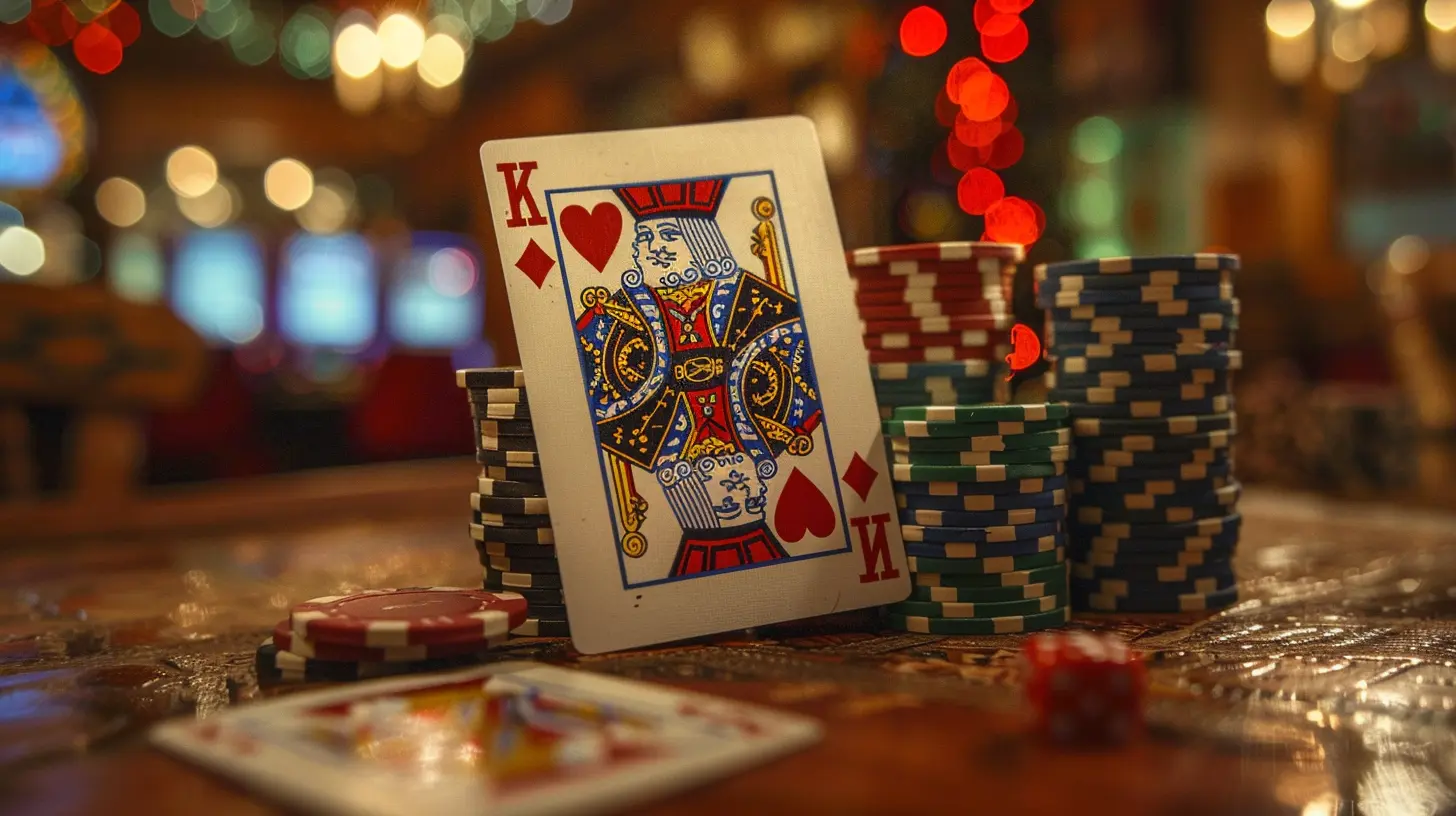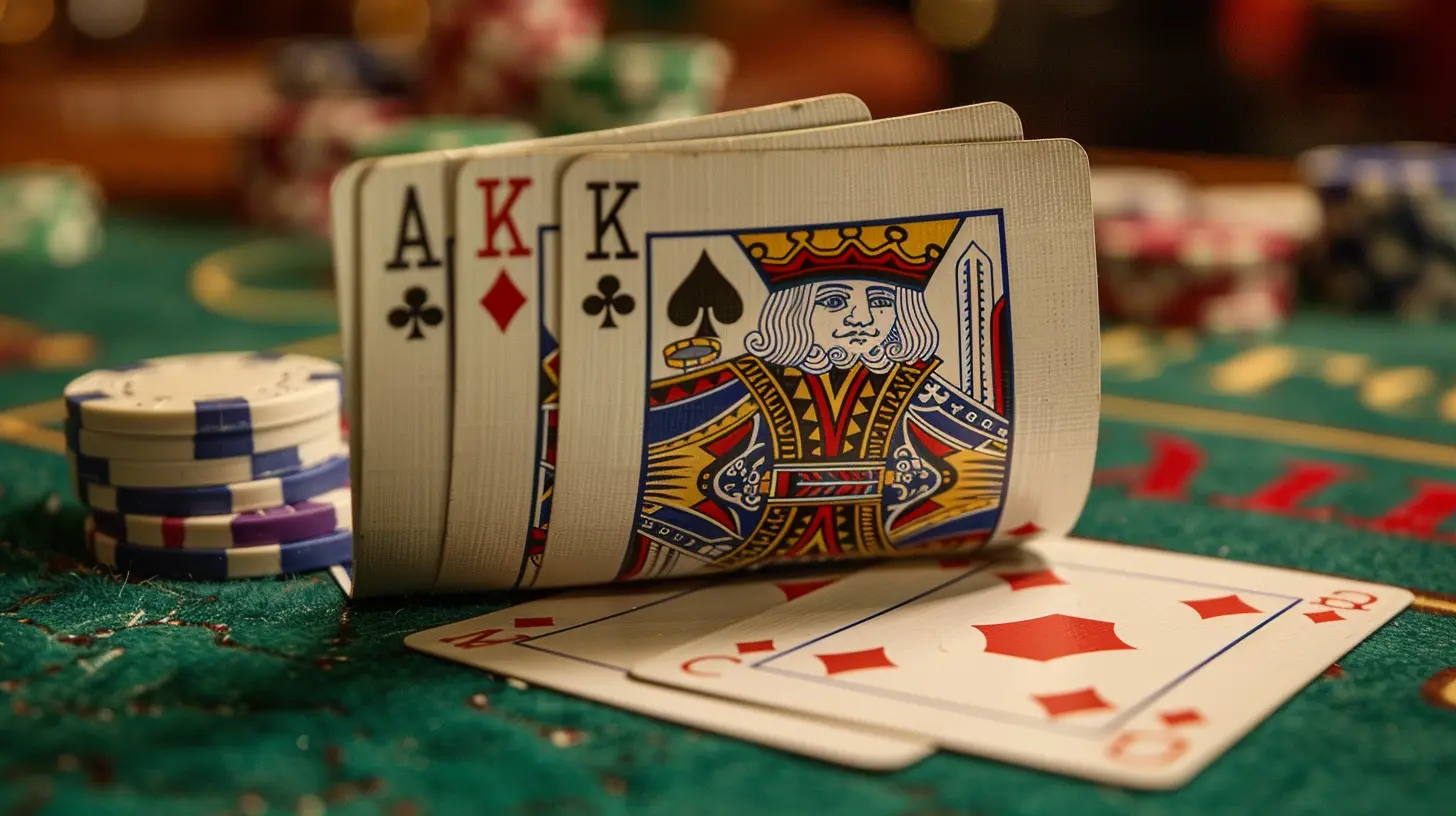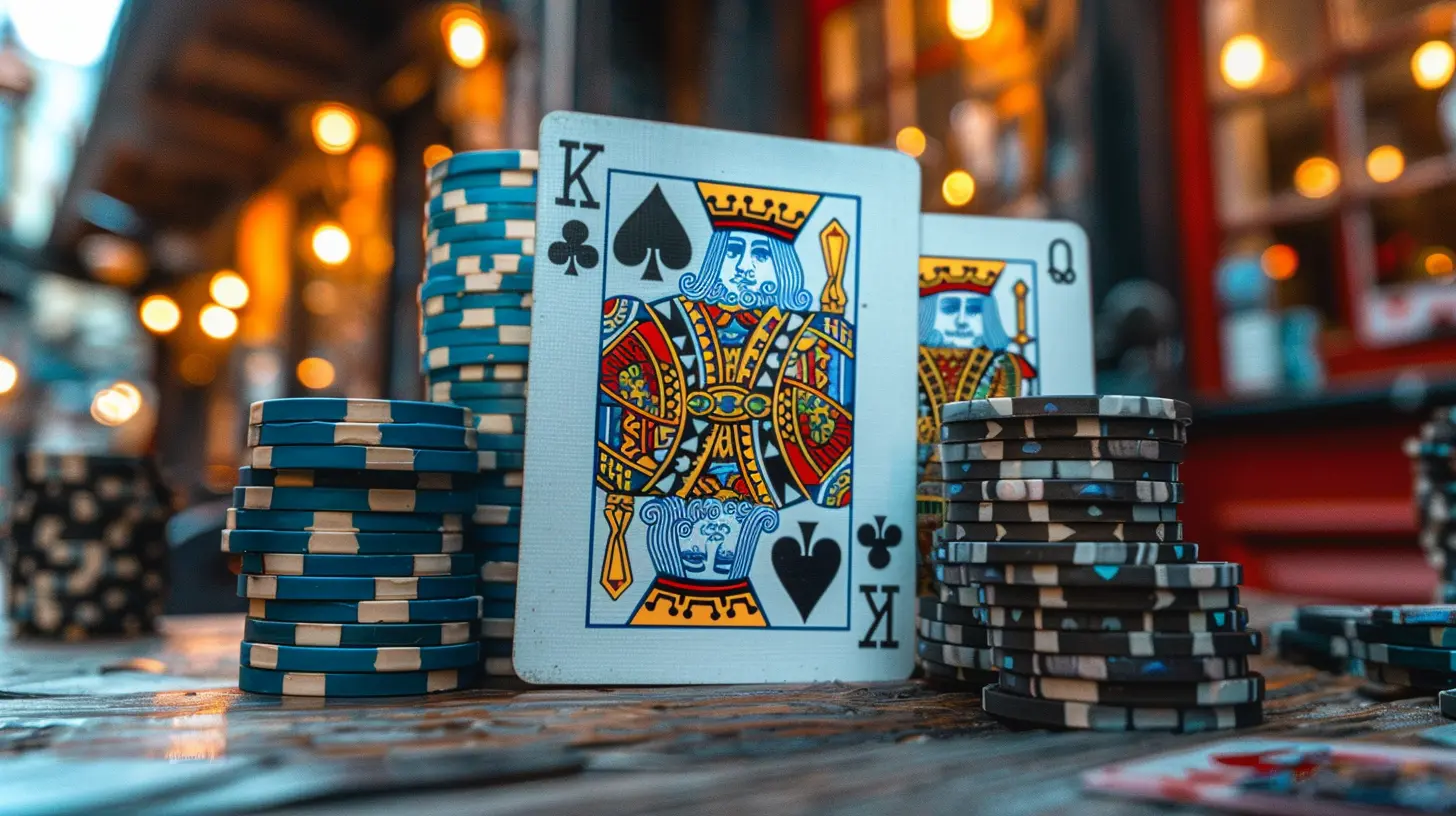The Psychology of Risk in Gambling and Card Games
26 August 2025
Gambling isn’t just about flashing lights, spinning wheels, or the satisfying clack of chips on green felt. Nope, it's way deeper than that. If you’ve ever sat at a poker table, sweating over whether to call or fold, you already know — gambling tugs at something fundamental inside us. It's not just about money, it's about risk. And that risk? It plays with our brains in fascinating ways.
In this guide, we’re diving headfirst into the psychology of risk in gambling and card games. Whether you’re a casual player, a high-stakes grinder, or just someone curious about why people bet, this is for you.
🎲 Why Risk is So Damn Addictive
Take a second and think: why do people gamble at all? The odds are usually stacked against them. But they still do it — over and over. That’s because gambling triggers something primal.When you gamble, you’re engaging your brain’s reward system, the same one involved when you eat chocolate or fall in love. The dopamine rush from winning — especially after a stressful decision — is like rocket fuel for your brain. And here’s the kicker: even losing can give gamblers a thrill, especially if they almost won. That “near miss” effect? It’s like fool’s gold for your neurons.
Ever heard of the gambler’s high? It’s real. That pulse-pounding moment before the flop hits the table or the roulette ball lands — it gets your adrenaline going. It's not just about money anymore — it’s about the experience.
🧠 The Brain on Gambling: What’s Going On?
Let’s break down what’s happening upstairs.1. Dopamine — The Master Manipulator
Dopamine is your brain’s favorite hype man. It's released when you anticipate rewards, not just when you get them. That anticipation makes you want to spin that slot again or push all-in, even when logic says otherwise.But here's the twist — problem gamblers release more dopamine not just when they win, but even when they lose. The brain starts treating the act of gambling itself as a reward. Crazy, right?
2. The Illusion of Control
Card games like poker or blackjack give players a sense of control. Unlike slots or roulette, where outcomes are pure luck, these games involve strategy. Players feel they can outsmart the system. And sometimes, they can — to a point.This illusion of control fuels risky behavior. It tricks the brain into believing that skill alone can overturn bad luck. So people keep playing, convinced that their "hot streak" or "gut feeling" means a win is just around the corner.
3. Variable Rewards — The Randomness Hook
Slot machines, online loot boxes, mystery card draws — all use variable reward systems. That means you don’t get a reward every time, just sometimes. And guess what?That random reinforcement is the most addictive kind. It's the same principle used in social media notifications and video game leveling. Your brain loves the unpredictability and craves the next hit.
🃏 Risk and Card Games: Strategy vs. Psychology
Let’s talk card games. Poker, blackjack, baccarat — they aren’t just luck-based. There’s real strategy involved. But even so, psychology plays a massive role.Reading Opponents
Take poker. Ever bluff, get called, and feel that wave of embarrassment? Or maybe you slow-played a big hand and wiped the floor with someone. Those interactions tap into our social brain.Understanding risk in card games also means understanding people. Players who can read others — facial expressions, betting patterns, hesitation — get a psychological edge.
Tolerance for Risk
Different players have different risk profiles. Some are tight and cautious. Others are loose and aggressive. These playing styles often reflect deeper personality traits.Your tolerance for risk can even change with your mood. Feeling confident or lucky? You bet bigger. Had a bad day? You might chase losses. That’s psychology creeping into your strategy.
🎰 Risk vs. Reward: Why We Chase the Big Score
Let's get something straight — humans aren’t great at evaluating risk. We overestimate our odds of winning and underestimate our chances of losing.Loss Aversion
Here comes a fun fact: losing hurts more than winning feels good. That’s what psychologists call "loss aversion."Imagine you’re up $200. You lose $50, and suddenly it feels like you’re down — even though you're still ahead. That discomfort can lead to chasing behavior — making riskier bets to “win it back.”
Sunk Cost Fallacy
Ever sat at a blackjack table too long, thinking, "I’ve already lost $300, I might as well keep playing"? That’s the sunk cost fallacy.Instead of walking away, players stay in the game hoping to justify their previous investment. Spoiler alert: it rarely ends well.
🧩 Cognitive Biases: Your Brain’s Risky Shortcuts
Biases are like bugs in our mental software. In gambling and card games, they show up a lot.The Gambler’s Fallacy
This is the belief that past outcomes affect future ones. Like thinking, “It’s been red five times in a row, black must be next.”Each spin, hand, or shuffle is independent. But your brain wants patterns, even when there aren’t any.
Confirmation Bias
We love to be right. So we remember the hands we won by trusting our gut, and forget the countless times it backfired.This bias reinforces risky behavior by making us think we’re smarter or luckier than we actually are.
Overconfidence Bias
Believe it or not, most people think they’re above average — at everything. This includes gambling. Many players assume they've "figured out the game," which leads to bold (and often reckless) betting.🎯 Risk Management: Playing Smart
Risk isn’t always a bad thing. In fact, smart risk-taking is the heart of many card games. The key is knowing how to manage it.Bankroll Management
Rule #1: Never play with money you can’t afford to lose. Set a budget and stick to it.Good gamblers treat their bankroll like a business budget. They don’t chase losses, and they don't get greedy.
Emotional Control
Tilt is real. That frustration when the cards don't go your way? It can lead to impulsive, irrational bets. The best players know when to step away, cool off, and reset.Know the Odds
Whether it’s calculating pot odds in poker or understanding house edge in blackjack, knowledge is power. The more you know, the better decisions you’ll make.🛑 When Risk Turns Into Addiction
Gambling becomes dangerous when the thrill of risk overtakes reason. Compulsive gamblers often believe they can “win it all back,” or that their next big play will fix everything.Here are some red flags:
- Lying about gambling
- Chasing losses consistently
- Gambling with money meant for bills or essentials
- Feeling restless or irritable when not gambling
If this sounds familiar — there’s no shame in seeking help. Organizations like Gamblers Anonymous can offer support.
🤝 Final Thoughts: It’s All in Your Head
At the end of the day, gambling and card games are about more than just rules and luck. They're playgrounds for the mind — places where risk and reward dance, and our brains become the stage.Understanding the psychology of risk doesn’t just make you a better player — it makes you a smarter one. So next time you sit at the table or fire up your favorite online casino, ask yourself:
Are you playing for fun — or are you playing with your mind?
🧠 Quick Tips to Keep Your Risk in Check
- Set a limit before you start playing (and stop when you hit it).- Don’t gamble when you’re tired, drunk, or emotional.
- Take breaks — step back, grab a snack, get some air.
- Log wins and losses; track your habits.
- Learn the game — knowledge reduces risky guesswork.
all images in this post were generated using AI tools
Category:
Card GamesAuthor:

Brianna Reyes
Discussion
rate this article
1 comments
Zephyrion Sharpe
Great article! I appreciated the exploration of how psychological factors influence decision-making in gambling and card games. It’s fascinating to see how risk perception shapes our choices. Understanding these dynamics can enhance our gameplay and awareness. Thank you for shedding light on such an important aspect of gaming!
September 11, 2025 at 4:39 AM

Brianna Reyes
Thank you for your kind words! I'm glad you found the exploration of psychological factors in decision-making insightful. Understanding these dynamics can indeed enhance both gameplay and awareness.


